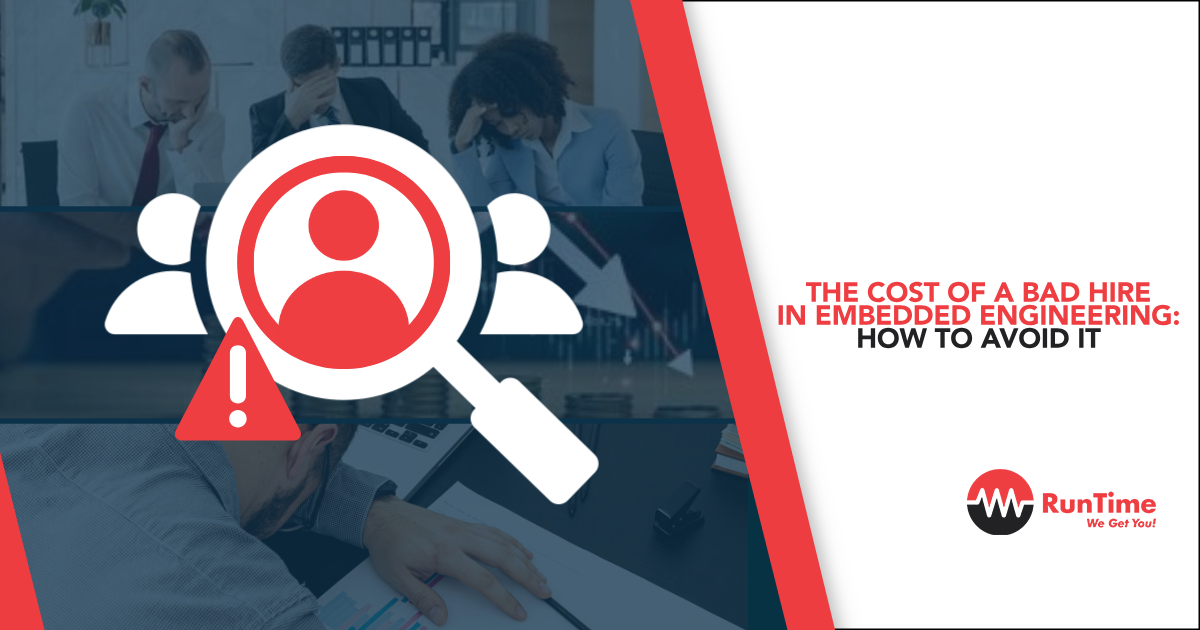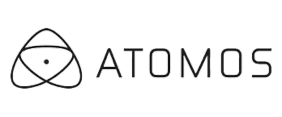In the competitive landscape of embedded engineering, the cost of a bad hire can be detrimental to a company’s success. Hiring the wrong person for an embedded engineering role can have far-reaching consequences, from delayed project timelines to increased expenses and team disruption.
To avoid these pitfalls, companies must implement strategic hiring practices that focus on technical skills, cultural fit, and soft skills. This comprehensive approach ensures that the selected candidates possess the required technical expertise and align with the company’s values and work dynamics. By investing time and resources in the recruitment process, organizations can mitigate the risks associated with a bad hire in embedded engineering, ultimately fostering a productive and harmonious work environment. This article explores the various aspects of hiring in embedded engineering and provides insights on how companies can streamline their recruitment processes to avoid the costly repercussions of a bad hire.
Understanding the Cost of a Bad Hire
Hiring the right talent is crucial for the success and growth of any organization. However, the cost of a bad hire can be significant and far-reaching, affecting not only the financial health of the company but also its culture and overall performance. In this blog section, we will delve into the various aspects of the cost of a bad hire and why businesses need to invest time and resources in ensuring they make the right hiring decisions.
Financial Implications
One of the most obvious costs of a bad hire is the financial impact it can have on a company. From recruitment expenses to training costs, a bad hire can result in wasted resources that could have been better utilized elsewhere. Moreover, if the employee does not meet expectations or leaves shortly after being hired, the company may have to restart the hiring process, incurring additional expenses.
Impact on Company Culture and Team Dynamics
Beyond the financial implications, a bad hire can also disrupt the company’s culture and team dynamics. A new employee who does not align with the values and goals of the organization can create tension and conflict within the team, leading to decreased morale and productivity. In some cases, a bad hire may even drive away top performers, further damaging the overall work environment.
Loss of Productivity and Project Setbacks
In addition to financial and cultural costs, a bad hire can also result in a loss of productivity and project setbacks. An employee who is not capable of performing their job effectively can slow down the progress of projects, impacting timelines and deliverables. This can not only affect the company’s bottom line but also its reputation in the industry.
Conclusion
The cost of a bad hire goes beyond just the financial aspect and can have lasting effects on a company’s success. By understanding the various implications of a bad hire, businesses can take proactive steps to mitigate risks and make more informed hiring decisions. Investing in thorough recruitment processes, including skills assessments, cultural fit evaluations, and reference checks, can help organizations avoid the high costs associated with a bad hire and build a strong, high-performing team.
Challenges in Embedded Engineering Hiring
Technical Expertise vs. Cultural Fit
Finding the right balance between technical skills and cultural fit is crucial in embedded engineering hiring. While technical expertise ensures that a candidate can perform the job tasks effectively, cultural fit determines how well they will integrate into the existing team dynamics. To evaluate technical expertise, consider using technical assessments, coding challenges, and asking specific technical questions during interviews. On the other hand, assessing cultural fit involves understanding the company’s values, work environment, and team dynamics. Utilize behavioral interviews, team-based activities, and reference checks to gauge cultural alignment.
Skills Assessment in Embedded Engineering
Effective skills assessment is essential in identifying top talent in embedded engineering. Employers can use a combination of technical interviews, coding assessments, and hands-on projects to evaluate a candidate’s technical capabilities. Practical assessments, such as debugging challenges or design projects, provide valuable insights into a candidate’s problem-solving skills and creativity. Additionally, consider incorporating peer reviews or panel interviews to gain multiple perspectives on a candidate’s skills.
Identifying Red Flags in the Hiring Process
Recognizing red flags during the hiring process can help prevent costly hiring mistakes in embedded engineering. Some common red flags include inconsistent work history, lack of technical depth in responses, and poor communication skills. Recruiters should also watch out for candidates who exhibit a disregard for deadlines, demonstrate resistance to feedback, or display a negative attitude. To mitigate these risks, conduct thorough reference checks, verify technical qualifications, and trust your instincts during the interview process.
Importance of Soft Skills in Embedded Engineering
In addition to technical expertise, soft skills play a significant role in the success of embedded engineers. Communication skills, teamwork, problem-solving abilities, and adaptability are essential qualities that contribute to a candidate’s overall fit within an organization. Employers should assess these soft skills through scenario-based questions, situational interviews, and interactions with potential team members. A balance between technical prowess and soft skills ensures that an embedded engineer can not only excel in their technical tasks but also collaborate effectively with colleagues and stakeholders.
Continuous Learning and Development
The field of embedded engineering is constantly evolving, with new technologies and methodologies emerging regularly. Employers should look for candidates who demonstrate a willingness to engage in continuous learning and development. A growth mindset, proactive attitude towards skill enhancement, and the ability to adapt to change are valuable traits in embedded engineers. Encourage ongoing training, provide resources for professional development, and create a culture that fosters learning to attract top talent and retain skilled individuals within the organization.
Leveraging Industry Connections and Networking
Networking plays a crucial role in the recruitment and retention of embedded engineering professionals. Building relationships with industry experts, attending relevant conferences and events, and engaging with online communities can help employers connect with potential candidates and stay updated on industry trends. Encourage employees to participate in networking opportunities, offer mentorship programs, and establish partnerships with educational institutions to build a robust talent pipeline for future hiring needs.
Embracing Diversity and Inclusion
Diversity and inclusion are key drivers of innovation and creativity in embedded engineering teams. Embrace diversity in hiring practices by actively seeking candidates from different backgrounds, cultures, and experiences. Inclusive workplaces foster collaboration, enhance problem-solving capabilities, and lead to a more enriching work environment. Implement diversity training, establish diversity goals, and create a culture of respect and acceptance to attract diverse talent and promote a culture of inclusivity within the organization.
Section: Role of Recruitment Agencies in Mitigating Bad Hires
Role of Recruitment Agencies in Mitigating Bad Hires
Recruitment agencies play a crucial role in helping companies find the right talent and mitigate the risks associated with bad hires. Let’s delve into the key aspects of how recruitment agencies contribute to this process.
- Understanding Company Culture and Technical Requirements
One of the primary responsibilities of recruitment agencies is to understand the unique company culture and technical requirements of their client organizations. By gaining insights into the work environment, values, and goals of the company, recruitment agencies can identify candidates who not only have the necessary skills but also align with the organization’s ethos.
- Utilizing Effective Candidate Sourcing Strategies
Recruitment agencies leverage a variety of candidate sourcing strategies to identify top talent for their clients. From tapping into their extensive networks to utilizing online job boards and social media platforms, recruitment agencies cast a wide net to attract qualified candidates. By employing targeted sourcing techniques, recruitment agencies can streamline the hiring process and present employers with a curated pool of candidates who meet the specific job requirements.
- Providing Post-Hire Support and Integration
The role of recruitment agencies doesn’t end once a candidate is hired. To ensure the long-term success of the placement, recruitment agencies provide post-hire support and integration services. This may involve conducting follow-up meetings with both the candidate and the employer to address any issues that may arise during the initial onboarding period. By facilitating open communication and offering guidance, recruitment agencies help foster a smooth transition and integration for the new hire.
- Enhanced Screening Processes
In addition to understanding company culture and technical requirements, recruitment agencies also play a vital role in enhancing the screening processes. Through in-depth interviews, skill assessments, and background checks, recruitment agencies ensure that candidates not only have the required qualifications but also fit seamlessly into the organization. This thorough vetting process reduces the likelihood of making a bad hire and increases the chances of a successful long-term placement.
- Continuous Talent Development
Recruitment agencies focus not only on filling immediate job openings but also on fostering continuous talent development. By building relationships with top candidates, recruitment agencies create talent pipelines that allow them to quickly identify suitable candidates for future positions within the client organizations. This proactive approach to talent management helps companies stay ahead in their recruitment efforts and maintain a competitive edge in the market.
- Measuring Success and Adaptation
To further mitigate the risks of bad hires, recruitment agencies continuously measure their success rates and adapt their strategies accordingly. By analyzing key performance indicators such as retention rates, candidate satisfaction, and time-to-fill metrics, recruitment agencies can refine their processes and ensure a higher quality of candidate placements. This data-driven approach allows recruitment agencies to stay agile in a dynamic job market and provide tailored solutions that align with the evolving needs of their clients.
Recruitment agencies serve as invaluable partners in the recruitment process, working hand in hand with companies to identify, attract, and retain top talent while minimizing the risks associated with bad hires. By combining a deep understanding of company culture, effective candidate sourcing strategies, post-hire support services, enhanced screening processes, continuous talent development initiatives, and a commitment to measuring success, recruitment agencies offer comprehensive solutions that contribute to the long-term success of both employers and candidates.
Benefits of Partnering with Specialized Agencies
Access to a Pool of Vetted Candidates
Partnering with a specialized agency provides access to a pool of pre-screened candidates who have been vetted based on their skills, experience, and qualifications. This saves time and resources during the recruitment process and increases the chances of finding the right candidate quickly. Specialized agencies often have extensive networks and resources to source top talent, giving your organization a competitive edge in attracting the best candidates.
Expertise in Matching Technical Skills and Cultural Fit
Specialized agencies have a deep understanding of the industry and the specific technical skills required for different roles. They leverage their expertise to not only match candidates based on technical skills but also on cultural fit within your organization. By considering both aspects, specialized agencies help ensure that the candidates not only meet the job requirements but also seamlessly integrate into your company’s work culture, enhancing team dynamics and productivity.
Long-Term Client Relationship Building
Partnering with a specialized agency goes beyond transactional recruitment processes; it fosters a long-term client relationship built on trust, transparency, and collaboration. Specialized agencies invest time in understanding your organization’s values, goals, and unique requirements, enabling them to provide personalized recruitment solutions that align with your long-term business objectives. This collaborative approach not only results in better quality hires and improved retention rates but also strengthens the partnership between your organization and the agency, leading to continued success in talent acquisition and workforce planning.
Enhanced Market Insights and Industry Knowledge
Specialized agencies bring a wealth of market insights and industry knowledge to the table. They stay updated on the latest trends, challenges, and innovations within the industry, allowing them to offer invaluable advice and guidance to their clients. By leveraging their expertise, you can gain a competitive advantage by making informed decisions regarding your talent acquisition strategies and workforce planning. This access to market intelligence can help you stay ahead of the curve and adapt proactively to changes in the industry landscape.
Streamlined Recruitment Processes and Cost Savings
Partnering with a specialized agency streamlines the recruitment processes by leveraging their established networks, tools, and methodologies. This efficiency not only accelerates the hiring timeline but also reduces the overall cost of recruitment. Specialized agencies are adept at identifying the most suitable candidates quickly, minimizing the time-to-fill vacancies and ensuring that your organization maintains productivity levels. Additionally, by outsourcing recruitment to experts, you can save on internal resources and focus on core business activities, thereby maximizing operational efficiency and cost-effectiveness.
Access to Niche Talent and Specialized Skills
Specialized agencies excel in sourcing niche talent with specialized skills that may be challenging to find through traditional recruitment channels. Whether you require professionals with niche technical expertise or specific industry certifications, specialized agencies have the networks and resources to connect you with top talent in the field. This access to specialized skills can be invaluable for roles that require unique qualifications or experience, ensuring that your organization has the right people in key positions to drive innovation, growth, and competitive advantage.
Flexible Recruitment Solutions and Scalability
Specialized agencies offer flexible recruitment solutions that can be tailored to meet your organization’s evolving needs and growth objectives. Whether you need to scale up your workforce quickly in response to market demands or require specialized talent for short-term projects, specialized agencies can provide customized solutions to address your specific requirements. This scalability ensures that you can adapt to changing business dynamics without compromising on the quality of hires or the efficiency of your recruitment processes. By partnering with a specialized agency, you gain access to a flexible talent pool that can support your organization’s growth trajectory and strategic initiatives.
Continuous Support and Talent Development
Partnering with a specialized agency extends beyond the initial recruitment phase; it includes ongoing support and talent development initiatives. Specialized agencies work closely with their clients to ensure that new hires are onboarded successfully and integrated into the organization seamlessly. They provide support in talent retention, performance management, and career development, fostering a culture of continuous learning and growth within your workforce. By investing in talent development, specialized agencies help your organization build a strong talent pipeline, nurture future leaders, and enhance overall employee engagement and satisfaction.
Innovation and Best Practices in Recruitment
Specialized agencies are at the forefront of innovation and best practices in recruitment. They leverage the latest technologies, tools, and methodologies to streamline processes, enhance candidate experiences, and drive recruitment efficiencies. By partnering with a specialized agency, you gain access to cutting-edge recruitment solutions that are tailored to meet the demands of a rapidly evolving talent landscape. From AI-powered candidate matching algorithms to data-driven insights and predictive analytics, specialized agencies leverage innovation to deliver superior recruitment outcomes and stay ahead of the competition.
Strategic Talent Acquisition and Employer Branding
Partnering with a specialized agency enables your organization to adopt a strategic approach to talent acquisition and employer branding. Specialized agencies work as strategic partners, aligning their recruitment strategies with your business goals and brand identity. They help enhance your employer brand by showcasing your organization’s values, culture, and opportunities to attract top talent in the market. By positioning your company as an employer of choice, specialized agencies support your efforts to engage with candidates effectively, differentiate your employer brand, and build a positive reputation in the industry. This strategic alignment not only attracts high-quality candidates but also strengthens your organization’s position as a preferred employer, driving long-term success in talent acquisition and retention.
Conclusion
Partnering with a specialized agency offers a myriad of benefits for organizations seeking to optimize their recruitment processes, enhance talent acquisition strategies, and drive long-term business success. From access to a pool of vetted candidates and expertise in matching technical skills and cultural fit to long-term client relationship building and strategic talent acquisition, specialized agencies play a crucial role in helping organizations attract, retain, and develop top talent. By leveraging the specialized knowledge, resources, and networks of these agencies, organizations can gain a competitive edge in the talent market, drive innovation, and build a high-performing workforce that propels them towards their business objectives and growth aspirations.
Section: Case Studies: Successful vs. Unsuccessful Embedded Engineering Hires
As the landscape of embedded engineering continues to evolve, the significance of making informed hiring decisions cannot be overstated. In this segment, we dive into real-world case studies that highlight the stark disparities between successful and unsuccessful embedded engineering hires.
1. The Ripple Effect of Poor Hiring Choices Explore the cascading impacts of a misguided hire in the field of embedded engineering. Uncover how a single wrong decision can lead to substantial financial losses, disruptions in project timelines, and a negative ripple effect on team dynamics and morale.
2. Case Study: Lessons from a Failed Embedded Engineering Recruitment Delve into a comprehensive analysis of a specific instance where an embedded engineering hire fell short of expectations, resulting in setbacks and project failure. Unearth the pivotal errors made, and extract valuable insights and lessons from this unfortunate scenario.
3. Case Study: Unveiling the Triumph of a Successful Hire Contrast the previous case with an in-depth examination of a successful hiring narrative in the realm of embedded engineering. Identify the strategic decisions, core competencies, and best practices that led to a favorable outcome, steering the project towards triumph.
4. Drawing on Insights and Key Learnings Synthesize the essential takeaways from both case studies to distill actionable insights into the fundamental elements driving successful embedded engineering hires. Acquire a holistic understanding of the strategies and tactics that can elevate your hiring process and mitigate potential risks.
5. Nurturing a Culture of Excellence Beyond individual case analyses, emphasize the importance of fostering a culture of excellence within the embedded engineering domain. Highlight the significance of aligning organizational values with hiring practices to cultivate a high-performing team.
These case studies underscore the substantial impact that hiring choices wield over the outcomes of embedded engineering projects. By leveraging the experiences shared in these real-world examples, you can refine your hiring strategies, mitigate risks, and steer your projects towards success in the dynamic landscape of embedded engineering.
Best Practices in Embedded Engineering Recruitment
Crafting Comprehensive Job Descriptions
Crafting comprehensive job descriptions is the cornerstone of successful embedded engineering recruitment. These descriptions should go beyond listing basic job responsibilities and qualifications. They should also highlight the company culture, growth opportunities, and the exciting projects the candidates will be a part of. By providing a clear picture of what the role entails and how it contributes to the company’s mission, you can attract top talent who are not only qualified but also aligned with the organization’s values.
Implementing Structured Interview Processes
Structured interviews are essential in ensuring a fair and effective evaluation of candidates. In addition to technical assessments and behavioral questions, consider incorporating panel interviews where candidates meet with multiple team members. This approach provides a more comprehensive view of the candidate’s skills and fit within the team dynamics. Moreover, using scorecards to evaluate candidates objectively based on predetermined criteria helps in making informed hiring decisions.
Establishing a Continuous Evaluation and Feedback Loop
Continuous evaluation and feedback are critical components of refining the recruitment process. Collect feedback from interviewers, candidates, and hiring managers to identify areas of improvement. Analyze recruitment metrics such as time-to-fill, offer acceptance rates, and candidate feedback to pinpoint bottlenecks and streamline the hiring process. By iteratively improving recruitment strategies, you can enhance the candidate experience and increase the likelihood of securing top talent.
Embracing Technology in Recruitment
Incorporating technology into the recruitment process can significantly improve efficiency and reach. Utilize applicant tracking systems (ATS) to streamline candidate sourcing, screening, and communication. Leverage data analytics to identify trends in candidate preferences and optimize recruitment campaigns. Additionally, consider using video interviewing platforms to conduct initial screenings efficiently and reach geographically dispersed candidates. Embracing technological advancements not only simplifies the recruitment process but also enhances the overall candidate experience.
Prioritizing Diversity and Inclusion
Diversity and inclusion are integral to building a strong and innovative team. Ensure that your recruitment efforts are inclusive and bias-free by implementing diverse interview panels, offering training on unconscious bias, and actively seeking candidates from underrepresented groups. By fostering a diverse workforce, you not only enrich your team with varied perspectives and experiences but also create a more inclusive work environment where every individual feels valued and empowered.
Conclusion
Successful embedded engineering recruitment requires a strategic approach that encompasses crafting compelling job descriptions, implementing structured interviews, fostering continuous improvement, leveraging technology, and prioritizing diversity and inclusion. By following these best practices, organizations can attract top talent, build high-performing teams, and drive innovation in the field of embedded engineering.
The cost of a bad hire in embedded engineering can be detrimental to both a company’s finances and overall productivity. By implementing strategic hiring practices, such as thorough screening processes, technical assessments, and behavioral interviews, organizations can significantly reduce the risk of making a costly hiring mistake. Investing time and resources in finding the right candidates who not only possess the necessary technical skills but also fit well within the company culture is crucial in avoiding the repercussions of a bad hire. Ultimately, prioritizing quality over speed in the hiring process can lead to long-term success and a more efficient and effective embedded engineering team.









